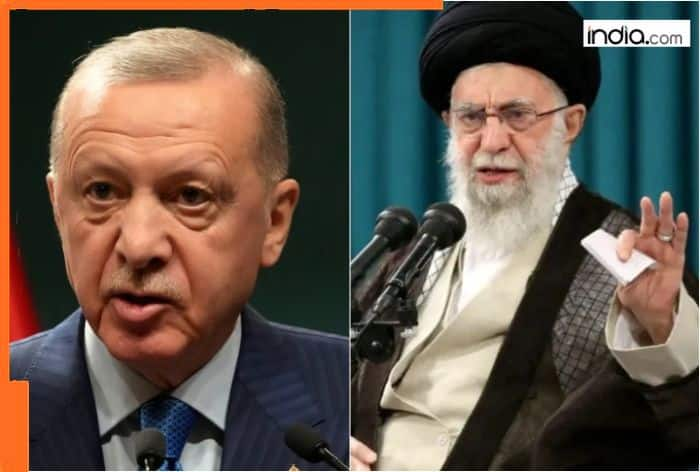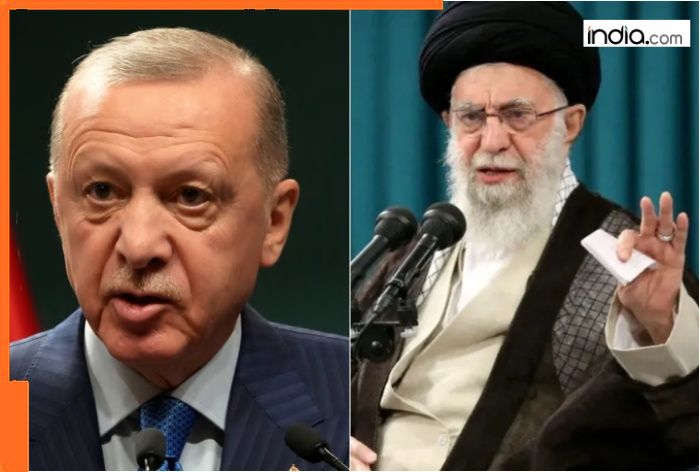Tensions have been high between Iran and Turkey since coup in Syria which resulted in the toppling of Tehran-backed Syrian President Bashar al-Assad by Ankara-backed rebel groups led by the Hayat Tahrir al-Sham in November last year, leading to the end of the Syria civil war.

(File)
Syria Civil War: Relations between Iran and Turkey have deteriorated since the fall of Syria’s Bashar al-Assad in November last year, with Iranian Supreme Leader Ayatollah Khamenei implicitly implicating Ankara in the toppling of the Assad regime. Now, months after Assad’s ouster, Turkey has claimed to have arrested five alleged Iranian ‘spies’, accused of collecting sensitive information about Turkish military bases.
According to Turkey’s state-run Anadolu Agency, the arrested were made by Ankara’s intelligence agencies on Friday in Antalya, Istanbul, and Mersin cities, based on the investigation of Istanbul prosecutor’s office.
Iranian spies linked to IRGC
Ankara has claimed that the five individuals, with alleged links to Iran’s powerful Islamic Revolutionary Guard Corps (IRGC), are involved in military and political espionage, and are accused of collection sensitive information about Turkish military bases and strategic locations in the country and abroad.
As per the Anadolu report, the intelligence agencies have found evidence that the arrested Iranians, were in contact with members of IRGC’s intelligence arm, and the exact purpose of the their information collection on Ankara’s military locations is being ascertained.
Tensions surges between Iran and Turkey
Tensions have been high between Iran and Turkey since coup in Syria which resulted in the toppling of Tehran-backed Syrian President Bashar al-Assad by Ankara-backed rebel groups led by the Hayat Tahrir al-Sham in November last year, leading to the end of the Syria civil war.
In a recent statement, Turkish Foreign Minister Hakan Fidan warned Iran to abstain from disturbing ‘stability’ in Syria, following which Tehran summoned the Turkish ambassador to register a formal protest. Ankara reciprocated by summoning the Iranian ambassador, leading to tensions between the two nations.
Earlier, Iran’s Foreign Ministry spokesperson Ismail Baghai had admitted that there is disagreement between Tehran and Ankara on various issues.
Iran-Turkey relations and the fall of Bashar al-Assad
Notably, following the toppling of the Assad regime, Iran’s Supreme Leader Ayatollah Ali Khamenei had stated that the fall of the Syrian President was the result of a well-planned effort by the United States and Israel, and a “neighbouring country of Syria”, in a subtle hint at Turkey’s involvement in the coup in Damascus.
Without directly naming Turkey, Khamenei said that one of Syria’s neighbours also played a role in the toppling of Bashar al-Assad, referring to open support given to rebel forces by Turkish President Recep Tayyip Erdogan.
The neighbour had a “clear role and continues to do so,” he had said.
Turkey, a member of US-led NATO military alliance, controls large swathes of land in northern Syria after several cross-border incursions against the Syrian Kurdish YPG militia, was a strong supporter of anti-Assad rebel opposition groups since the Syria civil war broke out in 2011.
Iran and Russia were the two main allies of Bashar al-Assad, the former President who was overthrown and forced to flee the country after rebel forces, led by Hayat Tahrir al-Sham, captured Damascus. Experts say Iran had spent billions of dollars propping up Assad during the war and deployed its Revolutionary Guards to Syria to keep its ally in power.
